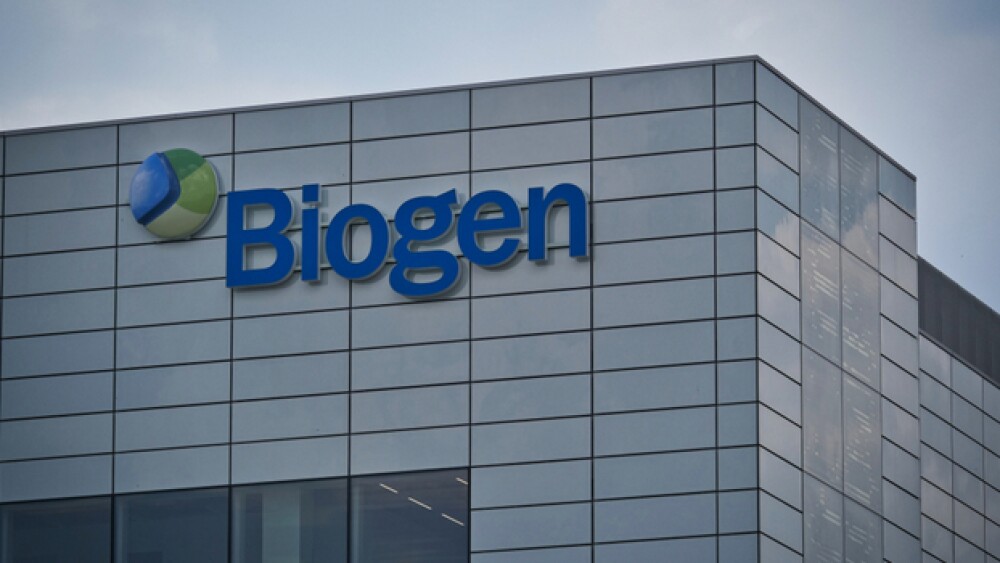Sage and Biogen forged the deal to jointly develop and commercialize zuranolone (SAGE-217) for major depressive disorder, postpartum depression and other psychiatric disorders and SAGE-324 for essential tremor and other neurological disorders.
PictureDesignSwiss/Shutterstock
SAGE Therapeutics and Biogen forged a deal worth $1.52 billion in upfront funds to jointly develop and commercialize zuranolone (SAGE-217) for major depressive disorder (MDD), postpartum depression (PPD) and other psychiatric disorders and SAGE-324 for essential tremor and other neurological disorders.
The two companies announced the partnership over the long holiday weekend. Biogen will receive an exclusive license to develop and commercialize zuranolone and SAGE-324 outside of the United States, with the exception of Japan, Taiwan and South Korea.
Zuranolone is an investigational oral neuroactive steroid (NAS) GABAA receptor positive allosteric modulator. The GABA system is the major inhibitory signaling pathway of the brain and central nervous system and contributes significantly to regulating brain function. In October, Sage released positive, top-line interim data from a Phase III study of zuranolone in MDD that showed the medication was well-tolerated in both a 30 mg does and 50 mg dose. Nearly half of trial participants who showed a positive response to an initial 14-day course of zuranolone at 30 mg did not need an additional zuranolone treatment course, the company said.
Zuranolone is currently in Phase III development for MDD and PPD. If the medication successfully navigates clinical development, Sage believes zuranolone has the potential to be a novel treatment paradigm in depression.
Last year, zuranolone failed to distinguish itself against placebo in a statistically significant manner after 15 days compared to placebo in the Hamilton Rating Scale for Depression. Despite that setback in the MOUNTAIN study, Sage said continued analysis of the data was encouraging, and, when coupled with other clinical data, shows potential promise in addressing depression. Zuranolone has been granted Breakthrough Therapy Designation by the U.S. Food & Drug Administration. More data is pending from this study, as well as other studies involving zuranolone and SAGE-324, a next-generation positive allosteric modulator of GABAA receptors in Phase II development for essential tremor with potential in other neurological conditions such as epilepsy and Parkinson’s disease.
Regarding the deal with Biogen, Sage Therapeutics Chief Operating Officer Mike Cloonan said the timing is right for a collaboration between like-minded companies.
“Through this collaboration, Sage and Biogen have the potential to build something greater together than either could have done alone. We will leverage each other’s existing expertise while continuing to build new capabilities in our efforts to create paradigm shifts in the treatment of depression, PPD and essential tremor -- disorders that have gone too long with few treatment innovations,” Cloonan said in a statement.
Cloonan added the finances from the collaboration will enable Sage to “accelerate and expand value potential” for the company’s pipeline and will also bolster its operational flexibility. The funds will certainly be a shot in the arm for Sage, which initiated a corporate restructuring that included the termination of 53% of its workforce in April.
Under terms of the deal, Sage Therapeutics will receive $1.525 billion in cash, which is comprised of an upfront payment of $875 million and a $650 million equity investment. The company will also be eligible for potential milestone payments, profit sharing and royalties that could total another $1.6 billion.
“We are excited about the potential to bring together Biogen’s leading capabilities in neuroscience with Sage’s deep expertise in psychiatry,” Michel Vounatsos, Biogen’s chief executive officer said in a statement. “Major depressive disorder affects approximately 17 million people in the U.S. alone, and is a common co-morbidity of multiple neurological disorders in Biogen’s core therapeutic areas. There is a tremendous unmet medical need in depression, and we are optimistic about the potential for zuranolone to help transform the treatment of depression and address the stigma often associated with chronic use of antidepressants.”
Biogen believes the Sage assets will complement its pipeline of neurological treatments. Depression is a common co-morbidity in patients with these neurological disorders. Like Sage, Biogen also took a significant hit regarding its experimental Alzheimer’s treatment, aducanumab -- a drug the company has heavily invested in. A U.S. Food and Drug Administration advisory committee was highly critical of the efficacy of the medication and recommended against its approval.
Featured Jobs on BioSpace





